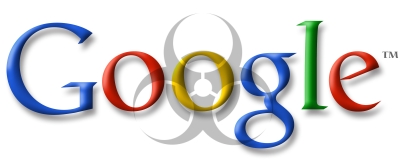What if there were no Google? A lesson in monoculture

Now now, stop laughing -- seriously! What if Google and all of its products and services ceased to exist tomorrow?
How would you operate?
The Next Web's Devid Petherick asks that very question, and it's a scary thing to think about:
- What search engine would you use if Google didn't exist?
- Where would you host your personal e-mail if not for Gmail?
- What would you do with your newly-bricked Google Android-powered T-Mobile G1? (Windows Mobile?)
- How would your office function without Google Groups, Docs, Chat/Talk and Calendar?
- How would you get from point A to B without the easy-to-use Google Maps?(Mapquest?)
- How would you read online news if not for Google Reader or iGoogle?
- How would sites with regularly-updated content (like this one) operate if not for Feedburner?
- How would sites monetize that content without Google Adsense?
- How would you track your finances without Google Finance? (Answer: ZDNet's sister site BNET)
- How would you surf the Web on a Netbook without the lightweight Google Chrome browser?
...and so forth: YouTube, Google Alerts, Picasa, Google News search, Patent search, Google Code, Webmaster Tools, etc.
Frightening as it sounds, Big Poppa Google provides an incredible amount of integrated online and mobile services. So what if GoogleDaddy gets sick?
Would you just quit it all and go back to paper and pencil?
Or would a series of upstart companies fill those holes, springing to action like Mother Nature reclaiming land?
More, after the jump.
Yesterday, ZDNet editor-in-chief Larry Dignan warned us about the pitfalls of "monoculture" -- the near-complete reliance on a single vendor for a solution to a problem. Dignan's post was about Google's flagging of all search results as malware -- a security error -- but just imagine the implications if the problem spread company-wide. After all, Google search may be its biggest and most notable business, but it's just one of many services.
Dignan writes:
In security circles, monoculture is a key concept. Roughly speaking, whenever a technology–Windows for instance–is dominant it becomes a big target to attack. You attack the target and wreak a lot of havoc. Windows is a monoculture. If Windows is wrecked the damage is far and wide just because of market share.
But this isn't just a security problem -- this is a lifestyle problem; a productivity problem; the very ability for businesses to function.
Dignan, again:
The goal for every IT vendor is to become your monoculture...and the pressure for enterprises to become a monoculture is immense. How many times have you heard some CIO yapping about standardizing on one technology because it’s allegedly more cost effective? When it comes to vendors they want one throat to choke. The downside: What you save in costs and complexity you lose in immunity.
And no company integrates its services quite as well as Google does. So what if Google, king of free and open, ceased to exist tomorrow?
Are we talking about a massive meltdown?
Want to check your Gmail? Out of luck. The Gchat protocol is out, so you can't tell anyone Gmail doesn't work. Got your meeting notes on Google Docs? Sorry, they're gone. Where was that conference, anyway? Time to get a Google Map....wait, maybe just a normal map. Does anyone have a tangible map anymore? You could call someone, but it looks like your G1 doesn't work anymore.
Obviously, not everyone uses Google to this degree, but you can see how reliance on a single vendor makes a problem potentially systemic. It's the same problem that geneticists discuss with regard to biological weapons: if everyone's the same, it's much easier to wipe a population out.
Only in this case, it's all things tech.
We're still trying to figure this problem out. Previously, Microsoft was the scapegoat, but since 2003, Google has emerged as the dominant monoculture thanks to the proliferation of SaaS and cloud services.
Do you think you rely too much on a single vendor? Is there a downside to convergence? Tell me about it in TalkBack.
